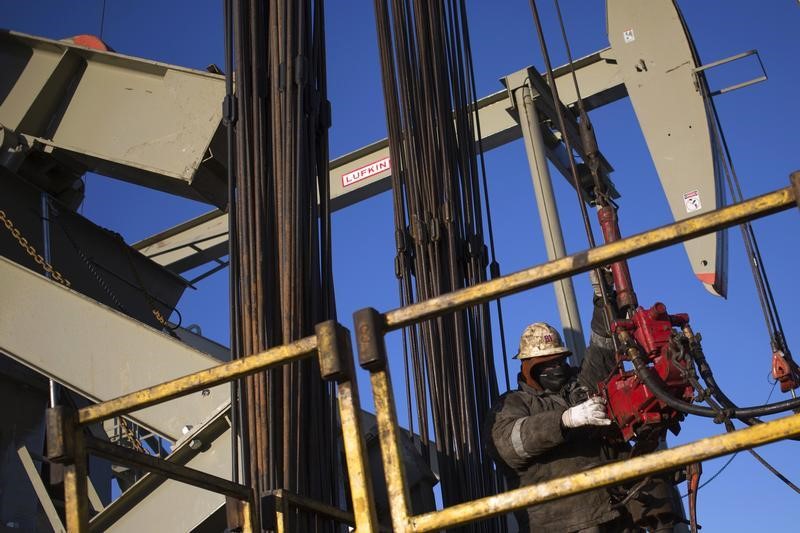By Henning Gloystein
SINGAPORE, Feb 24 (Reuters) - Oil prices slid in early trading on Wednesday, extending sharp falls from the previous session after top exporter Saudi Arabia ruled out production cuts and industry data showed a further build in U.S. crude stockpiles.
U.S. West Texas Intermediate (WTI) crude futures CLc1 were trading at $31.46 per barrel at 0012 GMT, down 41 cents from their last settlement. They had already dropped 6 percent the previous day.
The falls were a result of an apparent lack in cooperation among members of the Organization of the Petroleum Exporting Countries (OPEC) to freeze or cut production to rein in ballooning oversupply that has pulled down prices by 70 percent since mid-2014.
Saudi Arabia's veteran oil minister Ali Al-Naimi said on Tuesday at a conference in Houston, Texas, that a coordinated production cut by OPEC and non-OPEC exporters was "not going to happen because not many countries are going to deliver." also said that a proposed freeze in output at January levels, which were near record highs, would require "all the major producers to agree not to add additional barrels."
While non-OPEC giant Russia has tentatively agreed on freezing its output at January levels, when they hit a post-Soviet record, Iran called the proposal "laughable" because it would prevent Tehran from regaining market share it lost during Western sanctions, which were still in place in January.
"Some of our neighbours have increased their production to 10 million barrels a day in recent years and export this amount, and now they have the nerve to say we should all freeze our production together," Bijan Zanganeh was quoted as saying by the Iranian student news agency ISNA.
"So they should freeze their production at 10 million barrels and we should freeze ours at 1 million barrels - this is a laughable proposal," he said.
At current global output levels between 1 million and 2 million barrels of crude are produced every day in excess of demand, leaving storage facilities around the worlds brimming with unwanted supplies.
The American Petroleum Institute (API) said on Tuesday that crude inventories rose 7.1 million barrels in the week to Feb. 19 to 506.2 million, far exceeding analysts' expectations for an increase of 3.4 million barrels.
The U.S. Energy Information Administration will report official inventory data later on Wednesday. EIA/S
